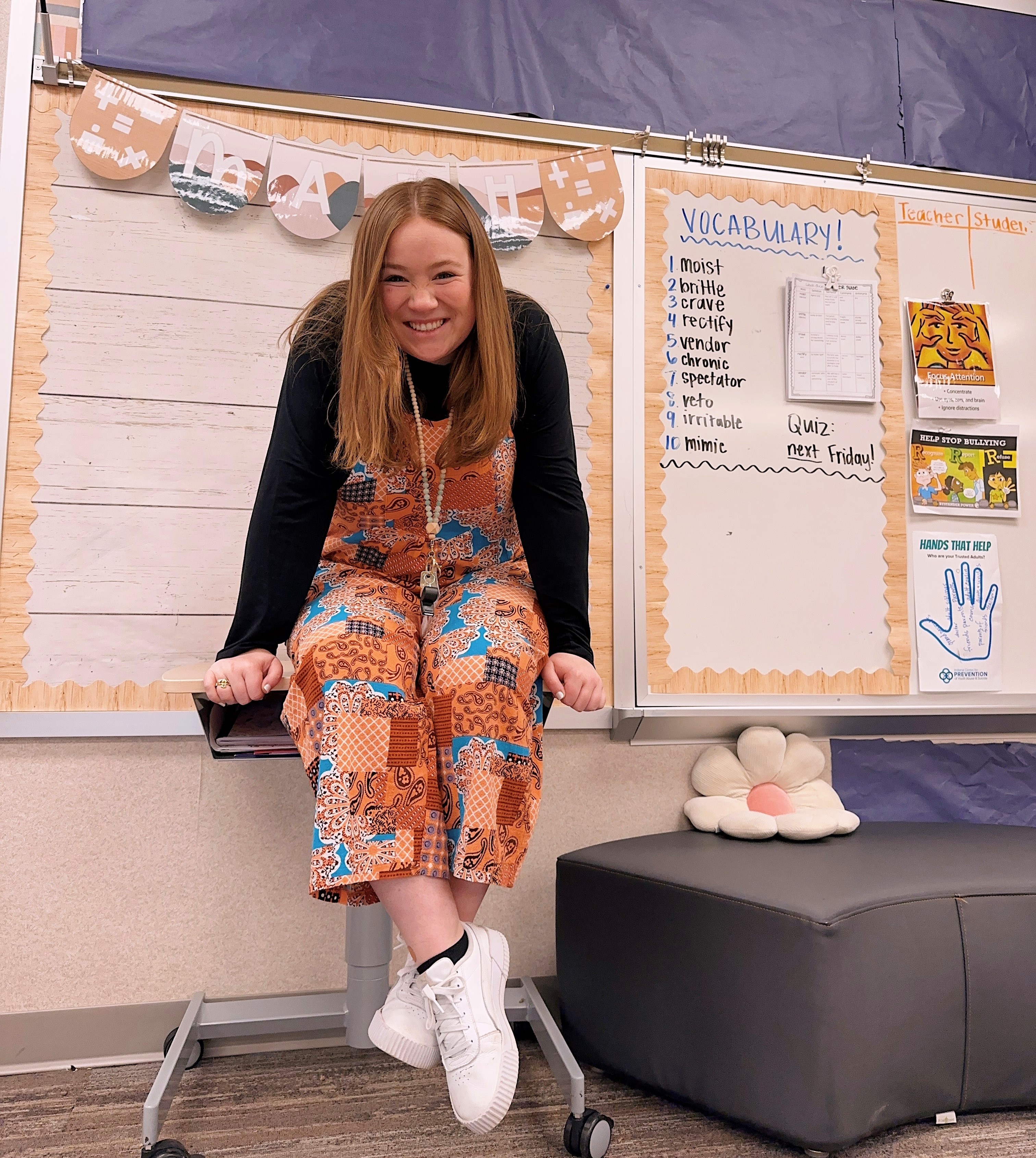I wish someone would have told me these things when I started teaching.
 Starting a career in teaching can be both exciting and daunting. With so much to learn and many challenges to face, it's easy to feel you're over your head. But don’t be afraid!
Starting a career in teaching can be both exciting and daunting. With so much to learn and many challenges to face, it's easy to feel you're over your head. But don’t be afraid!
As a rookie educator, eight months into my third-grade teaching career, I know what it's like to be a new teacher. I can relate to your situation and understand what it's like to start fresh.
Here are eight tips and advice for new teachers I wish I had when I started teaching in August to help me succeed in my first year, not just survive.
Being prepared is key, but don't be afraid to switch it up at a moment’s notice. I learned this the hard way with lesson plans. Having a roadmap keeps things organized, but you gotta be ready to ditch the highway for a scenic detour if your students need it.
I’ve learned that teaching is all about trial and error. I’ve had to figure out the routines that work for my kids, what sparks their curiosity, and what is their biggest motivator. Yes, I've had days when I planned everything carefully, but one day of drama in my class made me throw away my plan.
It's important to be flexible and adapt quickly. Always remember your goal is to make a positive impact on students' lives.
Positive reinforcement has been one of the biggest game-changers for my third graders. I focus on praising students who follow directions. This creates a positive learning environment. I no longer correct negative behavior.
I've also found that recognizing students by name when they're on task or prepared for class makes a big difference. Of course, redirection and consequences are sometimes necessary. My advice for new teachers is to use positive reinforcement to create a good learning atmosphere. It can help students learn better.
I know everyone has the same piece of advice for new teachers: build relationships with your students. You hear it constantly, from student teaching to in-service week.
The thing is, relationships with kids blossom organically over time, especially when you're practically their other parent for part of the day. I have learned not to rush into becoming best friends immediately.
Instead, I focus on creating a positive and engaging atmosphere. So throw in a fun activity, have silly conversations, and make some memories together! Those bonds will naturally flourish.
Let's be real: you can't always be the fun teacher. Disruptive behavior needs consequences, but sticking to them can be challenging, particularly in your first year.
The last thing I want is to be the "bad guy" by taking away recess, but I also know—if I say it, I gotta do it. Consistency is key!
Adding to the juggling act, I did not anticipate needing to learn your school's established norms alongside implementing my own ideas for routines and expectations. It's a lot to take in during that first year! But hey, that's how you grow as a teacher, right?
The biggest challenge for me this year has definitely been classroom management. Every teacher faces it, and I hear it changes every year with a new group of kids. It hasn’t been easy to navigate—especially with eight- and nine-year-olds with big emotions. But the most important thing I’ve learned is just to be kind–to my students and myself.
I've found that students with challenging behaviors sometimes just need a moment to cool down. If they're not hurting anyone, I let them sit in the back of the room for a bit. Third graders can become upset easily, so it's helpful to give them some space to calm down before talking to them. As long as they're safe, I let them do what they need to do and then have a restorative chat when they're ready.
@miss.macnulty Any advice for a first-year teacher? �� . . . #firstyearteacher #firstyearteacherproblems #teachertips #thirdgradeteacher #teachersoftiktok #teachertok #classroomsetup #teacherproblems #teachersontiktok #teachersbelike #teaching #elementaryschool #elementaryteacher ♬ Solas X Interstellar - Gabriel Albuquerqüe
Being a first-year teacher can be intense, but luckily I found another newbie also named Jenna (yes, really!) on my team. We constantly check in with each other, freaking out about tests and admitting our anxieties. A relief to ditch the perfect facade and know we're in this together!
Even if you don't find a work bestie, collaborating with colleagues is a must for surviving the first year.
Repeat after me: not every worksheet needs grading. If you need to have at least ten grades in your grade book by the end of the term, you don't have to input twenty. It's okay to let students complete activities for practice, not just points.
You also don’t need to turn around grades overnight.
I learned this the hard way. Grading became overwhelming fast when I pressured myself to deliver them the next day. As a first-year teacher, I thought I’d help my students best if I got them feedback quickly.
But take it from me—while you shouldn't wait so long that feedback becomes useless, it's also okay to take your time. A two-week turnaround is a win if students have time to learn from the feedback.
As I looked at the calendar at the start of the school year, I felt panicked. Ten months seemed like too short a time to fit everything in! But six months later, a deep breath and a day-by-day approach have proven surprisingly effective. Sure, I haven't tackled everything, but I've covered enough.
That’s why the biggest thing I wish I had known as a brand new teacher was to have a stronger dose of self-belief at the start. It sounds cliché, but I doubted myself even with a degree and license.
Instead, I should’ve focused on the present: "Okay, it's Monday. I can get through Monday. Tuesday will be Tuesday's problem."
So, my advice to new teachers is simple: believe in yourself. You're a professional, and you've got this.
More than a teacher
My first year as a teacher has had both good and bad moments. What keeps me going is being a positive and enthusiastic role model for the kids. I absolutely love being that mentor and positive role model in their lives.
On top of that, it's the aha! moments in teaching that keep me going. When the kids finally grasp something, when I see understanding click in their eyes—those moments solidify why I’m here. It's the impact I’m having, both emotionally and academically, that truly matters.
I’m sure you can relate.

Jenna is a first year teacher in the Midwest. Inspired by her own teachers growing up and her mom, the classroom is the only place she could imagine ending up. She teaches third grade- the sweet spot of elementary, in her opinion. Outside of school, she loves music and theater. She directs musicals for a youth theater program in her town!
Explore more related to this authorThe important thing is to stay flexible and adjust on the fly, but never lose sight of why you're there: to make a difference in students’ lives!
Jenna McNulty, 3rd grade teacher

Filed Under
